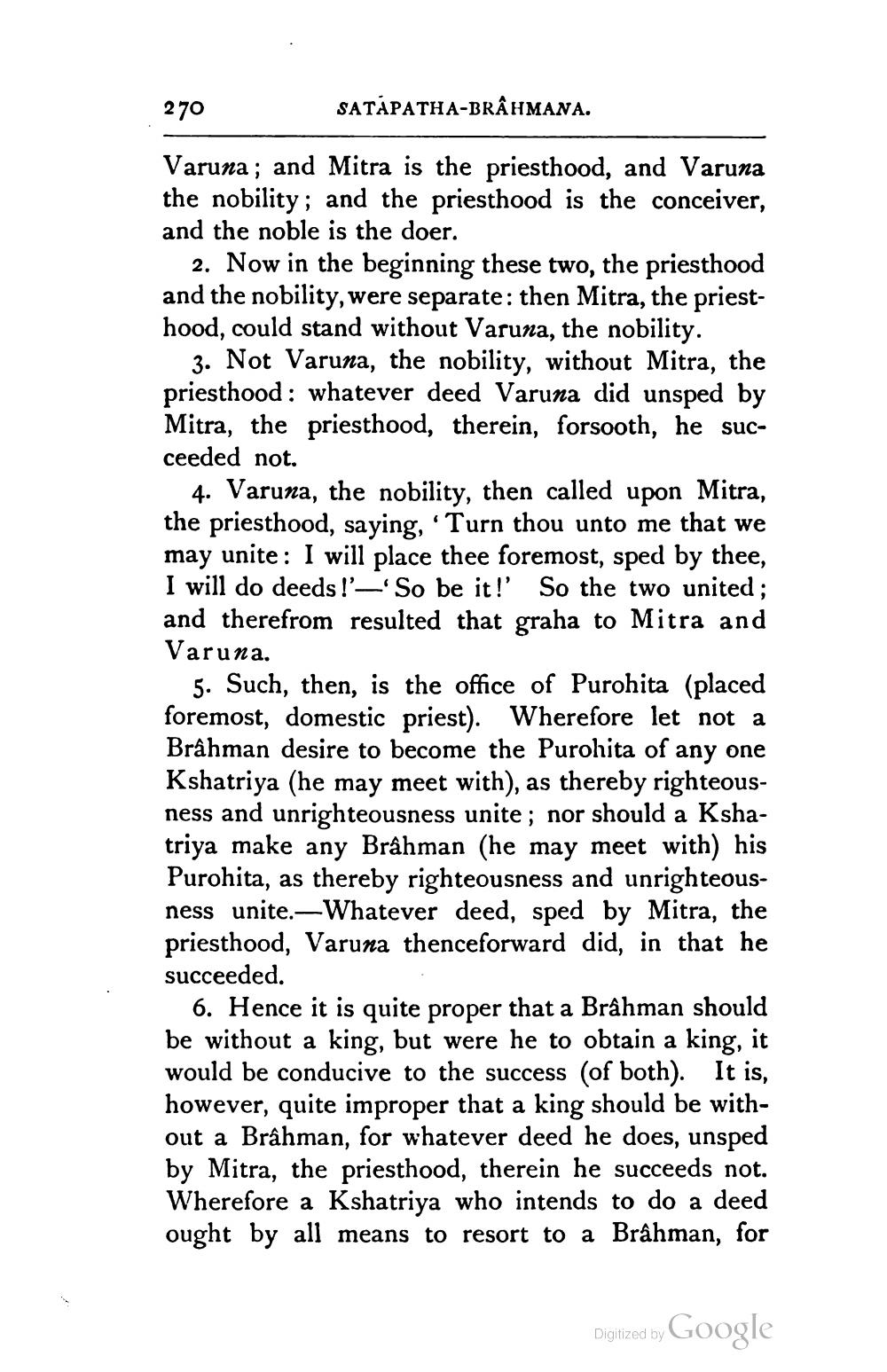________________
270
SATAPATHA-BRAHMANA.
Varuna; and Mitra is the priesthood, and Varuna the nobility; and the priesthood is the conceiver, and the noble is the doer.
2. Now in the beginning these two, the priesthood and the nobility, were separate: then Mitra, the priesthood, could stand without Varuna, the nobility.
3. Not Varuna, the nobility, without Mitra, the priesthood: whatever deed Varuna did unsped by Mitra, the priesthood, therein, forsooth, he succeeded not.
4. Varuna, the nobility, then called upon Mitra, the priesthood, saying, 'Turn thou unto me that we may unite: I will place thee foremost, sped by thee, I will do deeds!'—'So be it!' So the two united; and therefrom resulted that graha to Mitra and Varuna.
5. Such, then, is the office of Purohita (placed foremost, domestic priest). Wherefore let not a Brâhman desire to become the Purohita of any one Kshatriya (he may meet with), as thereby righteousness and unrighteousness unite ; nor should a Kshatriya make any Brâhman (he may meet with his Purohita, as thereby righteousness and unrighteousness unite.—Whatever deed, sped by Mitra, the priesthood, Varuna thenceforward did, in that he succeeded.
6. Hence it is quite proper that a Brâhman should be without a king, but were he to obtain a king, it would be conducive to the success (of both). It is, however, quite improper that a king should be without a Brâhman, for whatever deed he does, unsped by Mitra, the priesthood, therein he succeeds not. Wherefore a Kshatriya who intends to do a deed ought by all means to resort to a Brâhman, for
Digitized by Google




